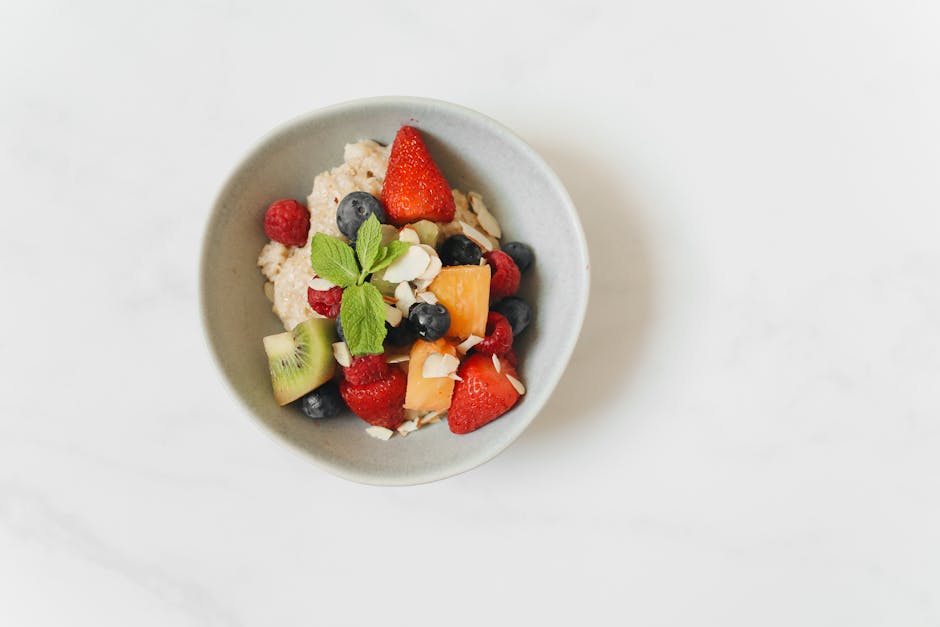
The Rise of Natural GLP-1 Supplements: A Comprehensive Review
|
|
Time to read 8 min
|
|
Time to read 8 min
Natural GLP-1 supplements have gained attention for their potential in supporting appetite regulation and weight loss. Many people are curious about these natural alternatives, seeking to mimic the effects of prescription medications that influence GLP-1—a hormone made in the gut that plays a key role in releasing insulin and controlling hunger. If you're wondering about the effectiveness, safety, and sources of these supplements, here's what you need to know:
As someone deeply invested in wellness and science-backed health strategies, I'm Robert Resz. With a focus on optimizing metabolic health, I've explored how natural GLP-1 supplements can be a tool in weight management. Now, let’s dig deeper into understanding the GLP-1 hormone's role in the body.
Natural GLP-1 supplements word list: - fasting supplements for weight loss - fasting health benefits - fasting support supplements
GLP-1, or glucagon-like peptide-1, is a natural hormone produced in the gut. It's a key player in regulating our body's metabolism and appetite.
After we eat, GLP-1 is released to help manage blood sugar levels. It stimulates the release of insulin, a hormone that moves glucose from the bloodstream into cells for energy. This process is crucial for maintaining stable blood sugar levels, especially after meals.
Research shows that GLP-1's role in insulin regulation is vital for people with type 2 diabetes. By enhancing insulin release, GLP-1 helps these individuals control their blood sugar more effectively.
GLP-1 also plays a significant role in appetite control. It signals the brain to feel full, reducing the urge to eat more. This hormone slows down digestion, giving the body more time to absorb nutrients and making you feel satisfied for longer.
However, not everyone gets the same boost of GLP-1 after eating. People with obesity, for example, might not experience as strong a GLP-1 response, which can make managing weight more challenging.
Understanding GLP-1's role helps explain why increasing its levels can aid in weight management and diabetes control. This is where natural GLP-1 supplements come into play, offering a way to improve the body's natural processes without medication.
In the next section, we'll explore these supplements, including popular ingredients like berberine, curcumin, and ginseng, and how they might help boost GLP-1 levels naturally.
Natural GLP-1 supplements are gaining attention as a way to support the body's natural hormone functions without relying on prescription medication. These supplements often include ingredients like berberine, curcumin, and ginseng, which have been studied for their potential to improve GLP-1 levels.
Berberine is a compound found in several plants and has been likened to "nature's Ozempic" due to its potential effects on weight loss and glucose metabolism. Studies suggest that berberine can help increase GLP-1 secretion, which may aid in regulating blood sugar levels and appetite control.
However, berberine supplements vary widely in dosage and duration, making it challenging to determine the exact impact. Some people experience side effects like nausea or bloating, so consult a healthcare provider before starting any supplement regimen.
Curcumin, the active ingredient in turmeric, is renowned for its anti-inflammatory properties. Research indicates it may also play a role in boosting GLP-1 levels. By enhancing GLP-1 secretion, curcumin could potentially aid in appetite control and blood sugar regulation.
Incorporating curcumin into your diet can be as simple as adding turmeric to meals or taking it as a supplement. Always look for products with third-party certification to ensure purity and potency.
Ginseng, a staple in traditional medicine, is another natural ingredient that might support GLP-1 activity. Some studies have shown that ginseng can improve insulin sensitivity and promote GLP-1 secretion, potentially benefiting those with metabolic health concerns.
As with any supplement, individual responses to ginseng can vary. It's crucial to monitor any changes in your health and consult with a healthcare professional to tailor the approach to your needs.
These natural ingredients offer promising ways to support GLP-1 function and overall metabolic health. While they can be part of a balanced health regimen, they should complement a healthy diet and regular exercise for optimal results.
In the following section, we'll dig into foods that naturally boost GLP-1, providing even more options for enhancing your health naturally.
When it comes to boosting GLP-1 naturally, certain foods can play a significant role. These foods not only support GLP-1 production but also contribute to overall health and wellness.
Oats are famous for their high soluble fiber content, which has been shown to stimulate GLP-1 release. When you eat oats, the soluble fiber forms a gel-like substance in your gut. This slows digestion and helps you feel full longer.
Despite social media trends like "oatzempic," blending oats with water and lime juice doesn't match the effect of GLP-1 medications. However, a hearty bowl of oatmeal is a delicious way to incorporate this fiber-rich food into your diet.
Whole grains, like brown rice, quinoa, and barley, are packed with nutrients and fiber. These grains are digested slowly, leading to a gradual release of GLP-1. This not only helps regulate your appetite but also supports steady blood sugar levels.
Incorporating whole grains into your meals can be as simple as swapping white rice for brown rice or choosing whole-grain bread. These small changes can have a big impact on your GLP-1 levels and overall health.
Fiber is a key player in GLP-1 production. Foods rich in fiber, such as beans, lentils, and fruits like apples and pears, promote GLP-1 secretion. They also help maintain a healthy digestive system and can aid in weight management.
A high-fiber diet is not just about enhancing GLP-1. It offers numerous health benefits, including improved heart health and reduced risk of certain diseases. Aim to include a variety of fiber-rich foods in your daily diet for the best results.
These foods provide a natural way to support GLP-1 function and help regulate appetite. By including them in your meals, you can improve your metabolic health in a delicious and satisfying way.
In the next section, we'll explore the science behind natural GLP-1 supplements, examining their efficacy and safety.
Natural GLP-1 supplements are gaining attention for their potential to aid in weight management and glucose control. But what does the science say about their efficacy and safety?
Research into natural GLP-1 supplements like berberine and curcumin has been promising, yet varied. Berberine, for instance, has been studied in several clinical trials. One meta-analysis of 12 randomized, controlled trials showed that berberine could lead to a modest weight loss of about 4.5 pounds and a 1-centimeter reduction in waist circumference. However, these trials used different doses and durations, making it hard to pinpoint the exact effects.
The efficacy of natural GLP-1 supplements can differ significantly from synthetic options like semaglutide. While prescription medications are standardized and have clear dosage guidelines, the effects of natural supplements can be less predictable. This is partly due to the variability in supplement formulations and the lack of rigorous standardization.
Nevertheless, some natural supplements have shown potential. For example, curcumin, found in turmeric, is being explored for its anti-inflammatory properties and possible role in enhancing GLP-1 secretion. Although more research is needed, these supplements could offer a complementary approach to traditional diabetes management.
Safety is a crucial factor when considering natural GLP-1 supplements. Unlike prescription medications, supplements aren't required to prove their safety and efficacy before hitting the market. This means consumers need to be cautious.
Common side effects associated with GLP-1 supplements include digestive issues such as nausea, bloating, and constipation. It's essential to consult a healthcare provider before starting any supplement, especially if you're taking other medications. Some supplements can interact with medications, making you more sensitive to their effects.
When choosing a natural GLP-1 supplement, look for products that are third-party certified. This certification ensures the product is accurately labeled and free from contaminants, providing an added layer of safety.
As the interest in natural GLP-1 supplements grows, more research is needed to fully understand their potential benefits and risks. In the next section, we'll address some frequently asked questions about these supplements, including how to activate GLP-1 naturally and whether there are any supplements that mimic Ozempic.
Activating GLP-1 naturally is simpler than you might think. It starts with the foods you eat.
Fiber, for instance, is a great way to boost your GLP-1 levels. Foods like oats, whole grains, and beans are rich in fiber and can help stimulate the release of this hormone. Fiber slows down digestion, keeping you full longer and helping control appetite.
Lean protein is another key player. Foods like chicken, fish, and legumes not only provide essential nutrients but also help increase GLP-1 secretion. Protein takes longer to digest, which can contribute to a feeling of fullness.
Healthy fats such as those found in avocados, nuts, and olive oil can also aid in GLP-1 activation. They provide satiety and can help balance blood sugar levels.
When it comes to mimicking the effects of Ozempic, natural GLP-1 supplements are often discussed. While these supplements aim to improve GLP-1 levels, they are not identical to prescription medications like Ozempic.
Berberine is one natural supplement that has shown potential. It's derived from several plants and has been studied for its effects on weight loss and glucose metabolism. However, the results are modest compared to synthetic GLP-1 medications.
Curcumin, found in turmeric, and other botanicals like ginseng, are also being explored for their potential to support GLP-1 activity. While promising, these natural alternatives don't match the potency and standardization of prescription options.
Semaglutide, the active ingredient in Ozempic, is a synthetic hormone. There is no natural source for semaglutide in foods or supplements. It is specifically designed and manufactured for medical use.
While you can't get semaglutide naturally, adopting a diet rich in fiber, lean protein, and healthy fats can support your body's natural GLP-1 production. Alongside regular exercise, these lifestyle choices can play a significant role in managing weight and blood sugar levels.
Incorporating these dietary habits and considering natural GLP-1 supplements, under the guidance of a healthcare provider, may offer a balanced approach to health and wellness.
At Rad Creative Wellness, we believe in the power of informed choices and holistic health. Our mission is to empower you with the knowledge and tools to transform your well-being naturally and effectively.
Exploring natural GLP-1 supplements can be a rewarding journey. These supplements, like berberine and curcumin, offer a potential pathway to support your body's natural processes. While they are not a direct replacement for prescription medications, they can be part of a broader strategy for health management.
Holistic health means looking at the whole picture. It's about combining diet, exercise, and mindfulness to create a balanced lifestyle. By focusing on foods that naturally boost GLP-1, such as fiber-rich grains and healthy fats, you can improve your body's natural hormone production.
We encourage you to make informed choices. Always consult with a healthcare provider before starting any new supplement regimen, especially if you're managing other health conditions. This ensures that your approach is safe and custom to your specific needs.
For more insights and guidance on supplements that support your journey, visit our Best Supplements page. Find how the integration of creativity and science can lead to a healthier, more vibrant you.

